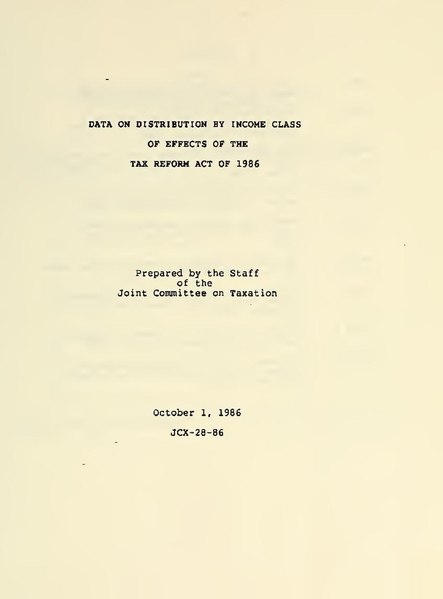Tax writers promise 50 years of secrecy for senators’ suggestions is a headline that I saw referenced on the Tax Prof blog. After I thought about it for a second I was a little embarrassed. I mean I’m not one of those people who can’t appreciate satire.
About Satire And Not Getting It
In 1729 Jonathan Swift published A Modest Proposal for Preventing the Children of Poor People From Being a Burden to Their Parents or Country, and for Making Them Beneficial to the Publick. He suggested that the poor in Ireland could help solve the problem of hunger by selling their children as food for the upper classes. Most people probably got that it was satire. There were some who were outraged and even a few who thought it was a good idea. That is the problem with satire and irony, some people will take it literally. Happens to me from time to time.
One of the best sources of contemporary satire is The Onion. Every once in a while an Onion story will get taken literally. I remember a series of Facebook comments concerning the story about Planned Parenthood opening an $8 billion “abortionplex”:
The remaining space is dedicated to amenities such as coffee shops, bars, dozens of restaurants and retail outlets, a three-story nightclub, and a 10-screen multiplex theater—features intended not only to help clients relax, but to foster a sense of community and make abortion more of a social event.
So obviously the 50 year secrecy for tax reform proposals headline must have been from The Onion.
You Can’t Make This Stuff Up
As it turns out, the headline was not from The Onion. It was from The Hill. Since it is not April 1, I guess the story is real.
The Senate’s top tax writers have promised their colleagues 50 years worth of secrecy in exchange for suggestions on what deductions and credits to preserve in tax reform.
Deeming the submissions confidential, the Senate’s top tax writers have said only certain staff members — 10 in all — will get direct access to a senator’s written suggestions. Each submission will also be given its own ID number and be kept on password-protected servers, with printed versions kept in locked safes.
The promise of confidentiality was revealed just two days before the deadline for senators to participate in the Finance Committee’s “blank slate” process, which puts the onus on lawmakers to argue for what credits and deductions should be kept in a streamlined tax code.
I Should Have Known – Or Why Tax Reform Is Impossible
The House Ways and Means Committee Tax Reform Working Groups solicited comments from the public about tax reform. There are a large number of responses. Almost all of them seem to take the same form:
Comprehensive tax reform and simplification is a fantastic idea. We here at the ABC Coalition for DEF just love the idea that you are working on it and totally support you. Of course we are sure that you know the DEF is critical to the American way of life and the health, safety and well-being of the world. We would just like to remind you that the GHI deduction and the JKL credit play a critical role in supporting DEF. So when you are doing your simplifying don’t even think about messing with the GHI deduction and the JKL credit. As a matter of fact, you probably should beef them up a bit and get busy on the MNO exemption that we have been asking for. Other than that, chop away at those special tax breaks and give us a simpler Code.
That is why the Senators want secrecy on their blank slate recommendations. They have to choose between incurring the wrath of the ABC Coalition, who gives them money, or the generalized displeasure of their constituents who really don’t think DEF is all that important.
Why Even A Philosopher King Would Have A Problem
Tax expenditures have been viewed as something of a free lunch way of supporting important social causes. They are a way of bridging the gap between the Left and the Right. Historic preservation, conservation and affordable housing are all supported by deductions and credits.
Credits and deductions bridge the ideological gap that that creates a presumption on one side that everything is done better if it is done by free market forces and that on the other side presumes that if somebody is making money on it it must be bad for everybody else. The collateral damage from that mode of compromise is a messy complicated tax code.
If we were to eliminate the tax expenditures in support of historic preservation, conservation and affordable housing what will happen? The Left will say that we should raise taxes and appropriate money. The Right will say that the free market will create the optimal solution. If there needs to be some government involvement, it should be state and local.
The main problem with the free market is what economists call externalities. Things like the look of an historic neighborhood or people living in cardboard boxes are externalities. Since they don’t affect an individuals bottom line, the free market is indifferent to them. Currently we address those particular concerns with tax expenditures. If we eliminate the tax expenditures, we either have to replace them with actual expenditures or stop addressing the issues. The ideological divide makes either alternative impossible.
When it comes to tax reform, we have met the enemy and he is us.
You can follow me on twitter @peterreillycpa.
































































































Trackbacks/Pingbacks